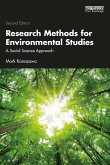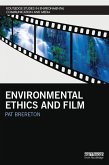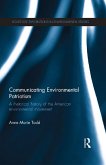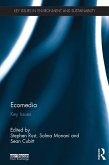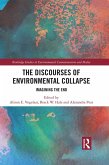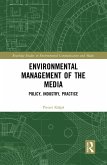Fully updated to address new developments such as the effects of the internet, recent trends in the use of computers, remote sensing, and large data sets, this new edition of Research Methods for Environmental Studies is written specifically for social science-based research into the environment. This revised edition contains new chapters on coding, focus groups, and an extended treatment of hypothesis testing. The textbook covers the best-practice research methods most used to study the environment and its connections to societal and economic activities and objectives. Over five key parts, Kanazawa introduces quantitative and qualitative approaches, mixed methods, and the special requirements of interdisciplinary research, emphasizing that methodological practice should be tailored to the specific needs of the project. Within these parts, detailed coverage is provided on key topics including the identification of a research project, hypothesis testing, spatial analysis, the case study method, ethnographic approaches, discourse analysis, mixed methods, survey and interview techniques, focus groups, and ethical issues in environmental research.
Drawing on a variety of extended and updated examples to encourage problem-based learning and fully addressing the challenges associated with interdisciplinary investigation, this book will be an essential resource for students embarking on courses exploring research methods in environmental studies.
Dieser Download kann aus rechtlichen Gründen nur mit Rechnungsadresse in A, B, BG, CY, CZ, D, DK, EW, E, FIN, F, GR, HR, H, IRL, I, LT, L, LR, M, NL, PL, P, R, S, SLO, SK ausgeliefert werden.
Ellen-Johanne Kvalsvik, PhD Fellow, Nature-Based Tourism
"This book fills a critical need: It introduces students of environmental studies to the broad array of social science methods used in this diverse, interdisciplinary field while showcasing classic and cutting-edge environmental research. Written in a clear, engaging style, it brings coherence to its subject by explaining how each method generates reliable knowledge and when to use which method. The new edition expands its discussion of qualitative research, including a new chapter on focus groups; addresses advances in computer processing, remote sensing, and machine learning; and foregrounds the treatment of research ethics. This is a valuable resource for anyone guiding students through the research process."
Kimberly Smith, Curriculum Coordinator/Lecturer, The University of Michigan, Program in the Environment
"This book illustrates convincingly the value of taking an interdisciplinary approach when studying environmental issues through a social science lens. It is thoroughly researched, couched in accessible language and examines key environmental issues insightfully. The emphasis in the book on the need to undertake research on the environment in an ethical way is timely, as well as important. Empirical evidence is presented engagingly and the book provides a useful practical toolkit to assist researchers in undertaking effective environmental research."
Dr Mark McQuinn, SOAS, University of London, UK



